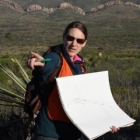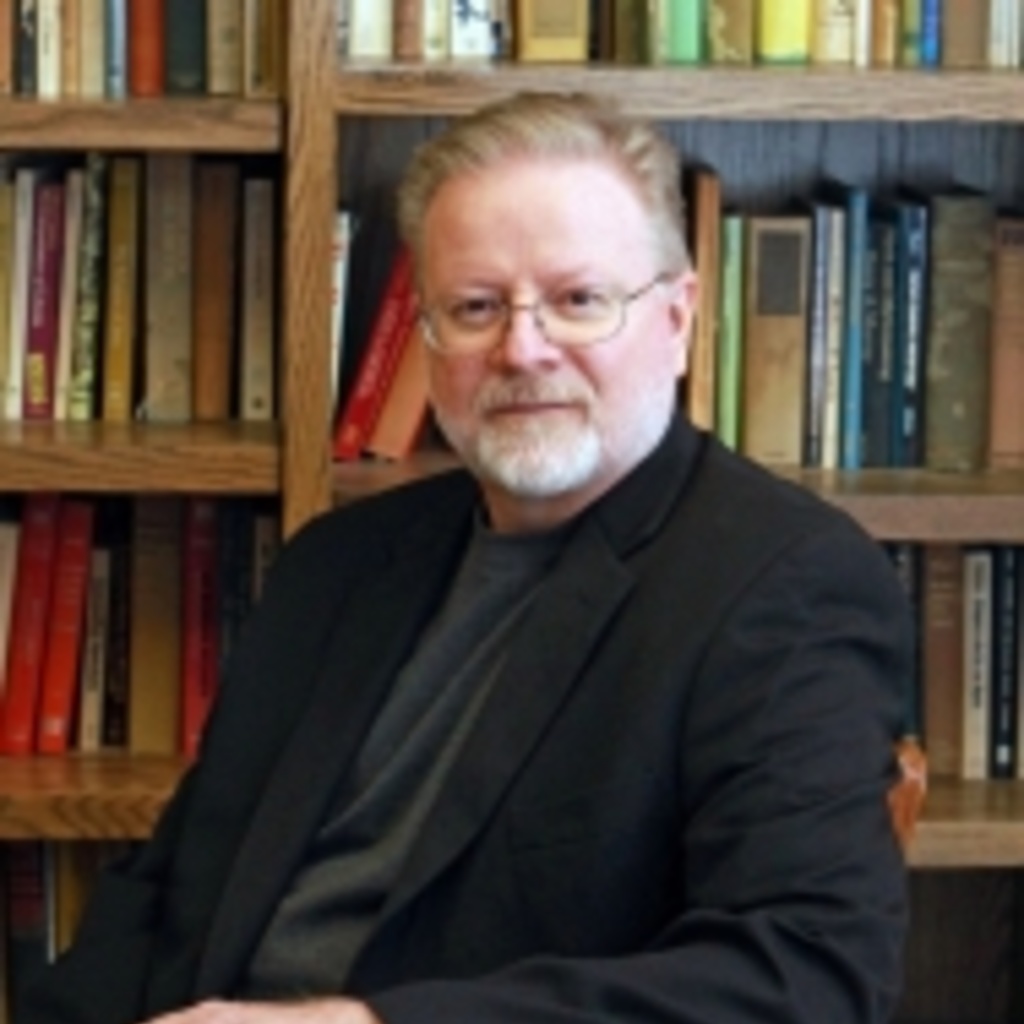The University of Iowa College of Liberal Arts and Sciences presented six faculty members with the 2021-2022 Collegiate Teaching Awards and two faculty with the 2021-2022 International Engagement Teaching Awards.
The CTA awardees include Emily Finzel (Earth and Environmental Sciences), Robert Franciscus (Anthropology), Sara Mitchell (Political Science), Brandon Myers (Computer Science), Elizabeth Yale (History), and Giovanni Zimotti (Spanish and Portuguese). Nominated by students and colleagues and chosen by the CLAS Teaching Awards Committee, these faculty members are awarded for their outstanding instruction and mentorship. Whether it is in the classroom, laboratory, or studio, these instructors have gone above and beyond to academically support their students. See the full list of recipients and learn more about the Collegiate Teaching Awards.
Nicole Esposito (Music) and William Reisinger (Political Science) were awarded the International Engagement Teaching Award, which is jointly awarded by CLAS and the University of Iowa International Program. The IETA recognizes instructors who foster international learning experiences for students.
Nicole Esposito, International Engagement Teaching Award
 Esposito is a professor of Flute in the School of Music. She has given over 200 international master classes to thousands of students. Her studio at the University of Iowa, which often includes many international students, has been active as performers and teachers in places such as Aruba, Argentina, Azerbaijan, Austria, Belgium, Brazil, Canada, China, Colombia, Costa Rica, Denmark, Dominican Republic, Dubai, Germany, Haiti, Hungary, Ireland, Israel, Italy, Mexico, Netherlands, Russia, Spain, Syria, Sweden, Taiwan and the United Kingdom among others. Professor Esposito has hosted international artists and students from over 25 countries on the University of Iowa campus both during the academic year and through her summer workshop, the Iowa Flute Intensive. In addition to teaching at Iowa, Professor Esposito is also the Permanent Visiting Professor of Flute at the University of Chile.
Esposito is a professor of Flute in the School of Music. She has given over 200 international master classes to thousands of students. Her studio at the University of Iowa, which often includes many international students, has been active as performers and teachers in places such as Aruba, Argentina, Azerbaijan, Austria, Belgium, Brazil, Canada, China, Colombia, Costa Rica, Denmark, Dominican Republic, Dubai, Germany, Haiti, Hungary, Ireland, Israel, Italy, Mexico, Netherlands, Russia, Spain, Syria, Sweden, Taiwan and the United Kingdom among others. Professor Esposito has hosted international artists and students from over 25 countries on the University of Iowa campus both during the academic year and through her summer workshop, the Iowa Flute Intensive. In addition to teaching at Iowa, Professor Esposito is also the Permanent Visiting Professor of Flute at the University of Chile.
“[The Iowa Flute Intensive] summer program is a series of international lectures and classes for students from around the globe, housed and hosted right here in Iowa City,” said School of Music Director Tammie Walker. “Giving her students internationally-focused learning experiences such as this truly impacts the direction of their studies and perspective, which lasts well beyond their years of study at Iowa.”
Emily Finzel, Collegiate Teaching Award
 Finzel is an associate professor of Earth and Environmental Sciences. Since joining faculty in 2012, Finzel has been known for her innovative teaching methods, which include interactive, hands-on exercises and a flipped classroom. She is nationally recognized for her role in defining best safety practices in field-based classes and places emphasis on soft skills such as clear written and verbal communication. Maintaining an “open office door” policy, Finzel prioritizes the needs of her students and is an exemplary mentor in and outside the classroom. In her lab, the Tectonics & Basin Analysis Lab, Finzel encourages and mentors undergraduate students seeking hands-on research and presentation experiences.
Finzel is an associate professor of Earth and Environmental Sciences. Since joining faculty in 2012, Finzel has been known for her innovative teaching methods, which include interactive, hands-on exercises and a flipped classroom. She is nationally recognized for her role in defining best safety practices in field-based classes and places emphasis on soft skills such as clear written and verbal communication. Maintaining an “open office door” policy, Finzel prioritizes the needs of her students and is an exemplary mentor in and outside the classroom. In her lab, the Tectonics & Basin Analysis Lab, Finzel encourages and mentors undergraduate students seeking hands-on research and presentation experiences.
“Emily is a strong advocate for helping students understand that employers are looking for a broad range of "soft skills" like critical thinking and oral/written communication, in addition to book knowledge,” said David W. Peate, DEO and Chair of Earth & Environmental Sciences. “With this in mind, she developed the EES:3130 Career Path Planning for EES course to get students to also learn about career paths, write resumes, and gain interview practice with the assistance of department alumni.”
Robert Franciscus, Collegiate Teaching Award
 Robert Franciscus is a professor of Anthropology. In the 23 years Franciscus has been mentoring students, his main priority has always been the professional outcomes and career goals after graduation. Franciscus has developed his own teaching and mentoring principles, one of which encourages each of his students to begin conducting research as soon as possible. After students have selected a research question to investigate, Franciscus sends them abroad or to another U.S. institution to give them real-world experience away from their UI community. Furthermore, Franciscus encourages his students to consider each one of their course papers as a potential publishable work and encourages them to present their research at national meetings. Franciscus also believes in gradually “cutting the academic umbilical cord” and limiting hands-on guidance to give his students the independence and real-world experiences they will need to succeed.
Robert Franciscus is a professor of Anthropology. In the 23 years Franciscus has been mentoring students, his main priority has always been the professional outcomes and career goals after graduation. Franciscus has developed his own teaching and mentoring principles, one of which encourages each of his students to begin conducting research as soon as possible. After students have selected a research question to investigate, Franciscus sends them abroad or to another U.S. institution to give them real-world experience away from their UI community. Furthermore, Franciscus encourages his students to consider each one of their course papers as a potential publishable work and encourages them to present their research at national meetings. Franciscus also believes in gradually “cutting the academic umbilical cord” and limiting hands-on guidance to give his students the independence and real-world experiences they will need to succeed.
“Bob is well-known in the Department for having the most impressive record of all the faculty for placing his graduate students in tenure-track jobs,” Katina T. Lillios, DEO of Anthropology, said. “He has chaired 12 PhD students since 2002, women and men, and all 9 of those who have completed their PhDs have secured tenure- track or academic positions. He supervised 15 undergraduate honors theses, and many of these students have also gone on to graduate programs and other rewarding careers.”
Sara Mitchell, Collegiate Teaching Award
 Sara Mitchell is the F. Wendell Miller professor of Political Science. Mitchell joined UI faculty in 2004 and has been working to make research accessible and inclusive for her students ever since. With emphasis on the connection between teaching and research, Mitchell has developed a single class discussion into Domestic Law Goes Global: Legal Traditions and International Courts, a book published by Cambridge University Press and co-authored by her former PhD student and current Notre Dame professor Emilia Powell. In the classroom, Mitchell also values student perspectives and engagement, encouraging all students to offer their viewpoint and enrich the discussion. Mitchell played a significant role in making Political Science more accessible through the online BA program. Mitchell developed three classes and worked alongside Distance Education to improve the quality of the courses. Additionally, Mitchell aims to make political science research more accessible in the four textbooks she has authored. In these textbooks, Mitchell breaks down technical jargon and provide clear information on the interstate and civil wars and scientific study of warfare. She also co-founded the Journeys in World Politics workshop, which mentors junior women studying international relations.
Sara Mitchell is the F. Wendell Miller professor of Political Science. Mitchell joined UI faculty in 2004 and has been working to make research accessible and inclusive for her students ever since. With emphasis on the connection between teaching and research, Mitchell has developed a single class discussion into Domestic Law Goes Global: Legal Traditions and International Courts, a book published by Cambridge University Press and co-authored by her former PhD student and current Notre Dame professor Emilia Powell. In the classroom, Mitchell also values student perspectives and engagement, encouraging all students to offer their viewpoint and enrich the discussion. Mitchell played a significant role in making Political Science more accessible through the online BA program. Mitchell developed three classes and worked alongside Distance Education to improve the quality of the courses. Additionally, Mitchell aims to make political science research more accessible in the four textbooks she has authored. In these textbooks, Mitchell breaks down technical jargon and provide clear information on the interstate and civil wars and scientific study of warfare. She also co-founded the Journeys in World Politics workshop, which mentors junior women studying international relations.
“Sara is central to our undergraduate and graduate curriculum,” Brian Lai, DEO of Political Science, said. “Her work with students outside of the classroom has also been a vital part of our ability to provide experiential learning opportunities for students.”
Brandon Myers, Collegiate Teaching Award
 Brandon Myers is a lecturer in Computer Science. Myers is particularly interested in understanding and improving the experiences of undergraduate students in computer science and other STEM disciplines. In addition to researching the accessibility of computer science introductory courses, Myers helped produce the department’s first program objectives for the bachelor’s degree. His teaching philosophy places emphasis on learning as an active process enhance by discussion and teaching as a reflective process informed by others. Myers also values inclusive teaching within computer science in hopes of retaining students from all backgrounds. Myers has students form learning teams to help encourage a sense of belonging for all students. In line with his teaching philosophy, Myers will ask students for feedback regarding the learning team. Myers is also working to make computer science more accessible prior to college and co-created and co-taught a computer science course for K-12 teachers.
Brandon Myers is a lecturer in Computer Science. Myers is particularly interested in understanding and improving the experiences of undergraduate students in computer science and other STEM disciplines. In addition to researching the accessibility of computer science introductory courses, Myers helped produce the department’s first program objectives for the bachelor’s degree. His teaching philosophy places emphasis on learning as an active process enhance by discussion and teaching as a reflective process informed by others. Myers also values inclusive teaching within computer science in hopes of retaining students from all backgrounds. Myers has students form learning teams to help encourage a sense of belonging for all students. In line with his teaching philosophy, Myers will ask students for feedback regarding the learning team. Myers is also working to make computer science more accessible prior to college and co-created and co-taught a computer science course for K-12 teachers.
“I’ve learned that Brandon is extremely thoughtful about how he explains things: he is aware of the listener’s context, and will think carefully not only about what the right or best answer actually is, but how to best communicate it given what the listener is likely to know,” Alberto Maria Segre, Chair of Computer Science, said. “Brandon is an exceptional teacher, a nationally established leader in student-oriented learning within our discipline, and a gifted student mentor.”
William Reisinger, International Engagement Teaching Award
 William Reisinger is a professor in Political Science. With research and curriculums focused on Russian politics, global democracy, and authoritarianism, Reisinger consistently supports international experiences in CLAS. All his courses include debates, discussions of current events, analysis of documents and memoirs, and/or guest presentations to expose students to non-U.S. perspectives and help students understand citizens from other countries. He is an advocate for study abroad experiences, especially as a Fulbright faculty mentor. Based on his own study abroad in Soviet Union in the 1980’s, Reisinger understands the invaluable connections and experiences studying abroad offers. Each year, he nominates about a dozen students for Fulbright consideration and encourage them to consider an international experience. He advises the campus Fulbright coordinator, leads workshops for students applying for the award, meets with students to discuss and edit applications, and participates in campus interviews. Additionally, he serves on the Campus Review Committee for Boren Awards and the selection committee for the University’s Stanley Scholarships and Fellowships. Additionally, he has mentored two visiting scholars from China and helped them get involved in departmental talks and events.
William Reisinger is a professor in Political Science. With research and curriculums focused on Russian politics, global democracy, and authoritarianism, Reisinger consistently supports international experiences in CLAS. All his courses include debates, discussions of current events, analysis of documents and memoirs, and/or guest presentations to expose students to non-U.S. perspectives and help students understand citizens from other countries. He is an advocate for study abroad experiences, especially as a Fulbright faculty mentor. Based on his own study abroad in Soviet Union in the 1980’s, Reisinger understands the invaluable connections and experiences studying abroad offers. Each year, he nominates about a dozen students for Fulbright consideration and encourage them to consider an international experience. He advises the campus Fulbright coordinator, leads workshops for students applying for the award, meets with students to discuss and edit applications, and participates in campus interviews. Additionally, he serves on the Campus Review Committee for Boren Awards and the selection committee for the University’s Stanley Scholarships and Fellowships. Additionally, he has mentored two visiting scholars from China and helped them get involved in departmental talks and events.
“He has provided a tremendous amount of service to the University in promoting internationally oriented learning experiences for graduate and undergraduate students,” Brian Lai, DEO of Political Science, said. “Bill’s classes enhance international perspectives by teaching students about the culture, history and politics of Russia and other non-democratic countries as well as how to understand the different political systems and approaches of non- democratic countries.”
Elizabeth Yale, Collegiate Teaching Award
 Elizabeth Yale is a lecturer and assistant professor of Instruction in the Department of History. Yale challenges her students to push past their assumptions about past ideas, material cultures, and social formations and encourages them to consider the world from different perspectives. She organizes her courses around deepening students’ research, writing and communication skills to grow their historical knowledge and encourage life-long learning. Her courses include interactive learning with hands-on work with rare books; peer review workshops; visits to the Natural History Museum and Van Allen observatory; and lab sessions in which the students experiment with early modern scientific methods. From introductory classes to advanced ones, Yale believes mentorship is crucial throughout a student’s time at Iowa. As an instructor for “Introduction to the History Major,” she ensures each of her students is equipped with the knowledge of early modern printed books and how to decipher a readers’ marks. This equips them for dissecting more challenging texts later in their college career. Yale also prioritizes student and colleague feedback to revise and improve courses. Recently, Matthew Brown, director of the University of Iowa Center for the Book, and Yale were awarded a NEH Humanities Initiatives grant proposal, which will fund a dedicated laboratory space where undergraduates can gain hands-on experience with making and studying books and manuscripts.
Elizabeth Yale is a lecturer and assistant professor of Instruction in the Department of History. Yale challenges her students to push past their assumptions about past ideas, material cultures, and social formations and encourages them to consider the world from different perspectives. She organizes her courses around deepening students’ research, writing and communication skills to grow their historical knowledge and encourage life-long learning. Her courses include interactive learning with hands-on work with rare books; peer review workshops; visits to the Natural History Museum and Van Allen observatory; and lab sessions in which the students experiment with early modern scientific methods. From introductory classes to advanced ones, Yale believes mentorship is crucial throughout a student’s time at Iowa. As an instructor for “Introduction to the History Major,” she ensures each of her students is equipped with the knowledge of early modern printed books and how to decipher a readers’ marks. This equips them for dissecting more challenging texts later in their college career. Yale also prioritizes student and colleague feedback to revise and improve courses. Recently, Matthew Brown, director of the University of Iowa Center for the Book, and Yale were awarded a NEH Humanities Initiatives grant proposal, which will fund a dedicated laboratory space where undergraduates can gain hands-on experience with making and studying books and manuscripts.
“Yale teaches an unusually wide range of courses, both by topic and by course level,” Landon Storrs, Chair of History, said. “She has been a leader in updating our curriculum, including to involve more experiential learning and more inclusive framings of history.”
Giovanni Zimotti, Collegiate Teaching Award
 Giovanni Zimotti is a lecturer of Spanish and Portuguese. As the program director for Spanish language general education program, Zimotti places cultural and social interaction at the forefront of his teachings. In line with his principles as an instructor, Zimotti centers the student in the learning process, provides students with the right tools based on their individual needs, and integrates technology to enhance learning. Zimotti also believes that it is an instructors duty to provide equal access and equitable education to all students. In collaboration with colleagues, Zimotti has designed and published various Open Educational Resources textbooks that are free to students. These textbooks aimed to portray the local people of a region as a diverse demographic instead of the dominant stereotype present in most textbooks. Furthermore, Zimotti created a self-assesment tool for students in general education Spanish courses to identify Spanish language skills they have obtained and areas where the need to improve. Adhering to these values, Zimotti continues to be a great resource and mentor to his students.
Giovanni Zimotti is a lecturer of Spanish and Portuguese. As the program director for Spanish language general education program, Zimotti places cultural and social interaction at the forefront of his teachings. In line with his principles as an instructor, Zimotti centers the student in the learning process, provides students with the right tools based on their individual needs, and integrates technology to enhance learning. Zimotti also believes that it is an instructors duty to provide equal access and equitable education to all students. In collaboration with colleagues, Zimotti has designed and published various Open Educational Resources textbooks that are free to students. These textbooks aimed to portray the local people of a region as a diverse demographic instead of the dominant stereotype present in most textbooks. Furthermore, Zimotti created a self-assesment tool for students in general education Spanish courses to identify Spanish language skills they have obtained and areas where the need to improve. Adhering to these values, Zimotti continues to be a great resource and mentor to his students.
“Dr. Zimotti’s outstanding achievements in curriculum innovation, mentoring, and empowering undergraduate students and TAs in our Spanish GEP are truly impressive,” said Denise K. Filios, DEO of Spanish and Portuguese and Interim DEO of German.